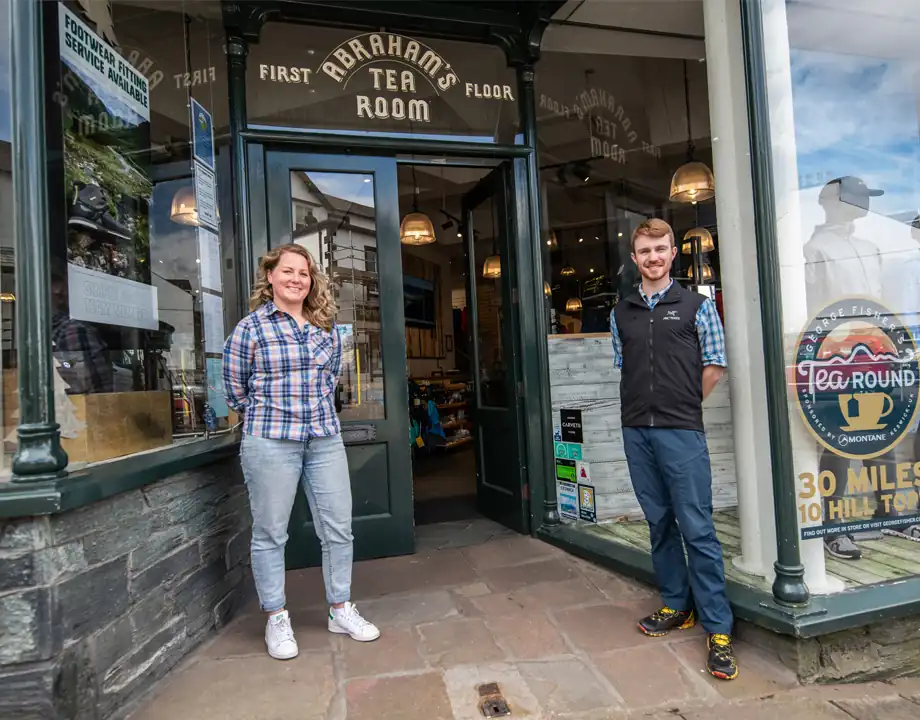
Loving People And Loving Places | George Fisher
Written by George Fisher
Wednesday, 17 February, 2021

For a lifetime of happy countryside walks, your puppy needs to be properly socialised and habituated to people and places. No walk in the countryside is enjoyable if your dog is frightened of people and anxious about the environment. One of the most common causes of this fear and anxiety is inadequate socialisation to people, and habituation to the environment.
Socialisation is the process where an animal learns how to recognise and happily interact with its own and other species. So with dogs we want them to like being around other dogs, people, cats for example, and for hill walkers it is important they meet sheep, cows, horses, rabbits and deer as these are what they will often see on walks. By learning how to interact with these animals, the well-socialised dog develops self-control and the skills to enable it to feel safe and not threatened.
Habituation is the process where an animal becomes accustomed to an environment and learns to ignore it. This also includes TVs, cars, as well as noises such as fireworks. For walkers this would also include tractors, wind turbines, wind, rain and snow.
There is a sensitive period of development in which socialisation and habituation must occur, and it is much less stressful for the dog and owner if habituation measures are put in place early so the dog has the best start possible.
Once a puppy can move it will approach anything without fear, but by the time it is 12 weeks of age anything new will be approached with more caution. So ideally dogs need to meet lots of people, dogs and other animals and a mix of environments between three and 12 weeks of age. As puppies usually go to new homes from 6-8 weeks, this means the main responsibility is with the breeders, leaving the owner only a short time to catch up.
Until puppies are protected by vaccination they should not be allowed to mix with dogs of unknown vaccination status, and should not be walked in areas where other dogs have fouled. But they can be taken out and about in ‘non-doggy’ areas, by carrying them to allow them to experience new sights and sounds without the risk of contact with disease.
In all these situations it is important the puppy should get used to experiences gradually without being stressed. So start in quiet areas and gradually build up to busy ones. The puppy should not be frightened, and should not be chasing people or animals, so you need to maintain control. Socialisation and habituation can be improved greatly by enrolling on dog training classes through the first year of the dog’s life. These give you the chance to learn how to train your dog, while your dog learns to sit and rest and watch other dogs and people in a controlled manner.
Many dogs are frightened of sounds such as gunfire, traffic and fireworks but habituating your dog to these sounds from early in life easily prevents this. You can even purchase CDs with firework sounds on them, or download sounds to play on your phone while you walk outdoors.
If you live in the city or town then head to the countryside every week, so your dog can learn to love the areas where you will want to walk. If you live in a remote village then head into towns and cities so your dog can learn to like the noise, hustle and bustle. There will always be a time on a walking trip with your dog when you find yourself in a town, be it to find accommodation or maybe visit an outdoor shop like George Fisher between showers!



